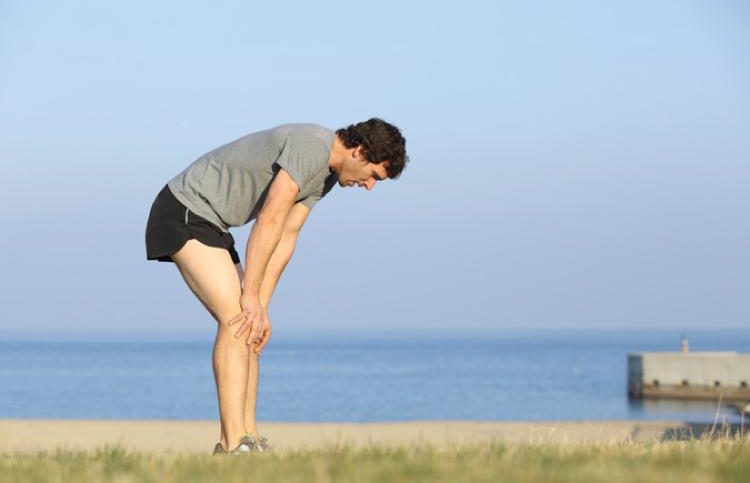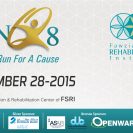I am not a fitness enthusiast. This is a mistake made by people who see me coming out of the gym in the morning and heading to the office, or lugging my bag to the gym in the afternoon. The reality is that there are few things I willingly do to myself that I hate more than exercising.
I have been working out for years and to my dismay I have discovered that there is no way to effortlessly get in shape. I have been through a rollercoaster of wrong advice, exercising purposelessly, injury, overtraining, undertraining, and making every mistake in the book.
My goals varied over the years, as did my frequency of exercise, and at one point I had the privilege of being trained by extremely professional (and patient) coaches during my brief stint in training mixed martial arts.
Throughout all of this, a common theme pervaded the literature promising that sooner or later I would come to enjoy the activity. That never happened. I always wanted the results without the exercise, and I still cannot bring myself to enjoy working out; it’s repetitive, tiring, time consuming, and physically and mentally taxing.
However, I would never give it up (willingly) because the benefits far outweigh the costs. So if you are like me and would rather be lazily sipping a cool drink than take another step on a treadmill, yet feel that you should exercise, remember to…
Determine Your Goal
It’s 1 in the morning, and you promise yourself that tomorrow you will implement an exercise and diet regimen. Nothing will deter you. You then take your newfound determination and go to sleep. Dawn breaks, and last night’s vigor evaporates like morning dew, taking the promises with it.
Having purpose will guide your effort; if you don’t have a clear goal, there is no way of measuring how close you are to it. Getting fit means a myriad of different things (e.g. getting stronger, faster, slimmer, leaner, or more durable, lowering your heart rate, getting over an addiction, increasing your endurance, or shaping up for the beach), each requiring different approaches and having different benchmarks. Identifying your goal is the first step. Then, you must understand that…
There Are No Shortcuts
Anything that promises instant results relies on some established patterns: if you have not been following an exercise and diet plan, your first phase will witness exceptional improvements before your body adapts to the new rhythms. You are also statistically unlikely to continue beyond a few weeks, particularly in the absence of preexisting exercise habits.
‘Shortcuts’ end up perpetuating a cycle of incompletion and complacency, reaffirming the belief that you can always ‘get in shape quickly with the miracle booster 7000 program.’ This belief allows you to consume the double pizza burger (extra butter) without the slightest twinge of guilt. Burning off that pizza will take time however because…
Gains Are Gradual
Gains are made gradually; a 2000-calorie workout every two weeks is less useful than consistent workouts that burn a tenth of that. Steady gains made over numerous sessions help instill the sense of discipline and create the neural pathways necessary to develop exercise habits and create a self-sustaining cycle.
What you should expect to see, if you were to draw a linear graph of your progress, is a notable rise in performance in the initial phase, possibly followed by a drop because your entire body will conspire against you at this stage in the form of aches and pains, and then a gentle rise, with intermittent periods of gains and (the ever so frustrating) plateaus.
The important thing is that there is consistent improvement in performance over time, which is most likely to happen if you…
Stay Informed
Sports science is dynamic and constantly evolving. Diets and exercise programs have advanced exponentially over the decades, and new information available daily on every aspect of human performance. The onus is on you to keep up; the most difficult task is filtering out unnecessary information, which is why it is necessary to adapt your research to your goals. If you seek to raise your maximum on the deadlift for instance, a subscription to Runners Weekly might not be the wisest investment.
By keeping up-to-date with current information, you can eventually tailor your program and make informed decisions on where and with whom to train. It will also arm you with enough knowledge to identify when someone is attempting to feed you a pile of bovine fecal matter. Staying informed is important but remember that…
Your Body Will Try to Give Up
Maintaining a training program is difficult. Every fiber of your being will encourage you to quit. A slightly painful ankle becomes a reason to skip a workout. A little drowsiness magnifies into wrapping your blanket around yourself instead of exercising. The slightest hint of a headache justifies immobility.
If you want to quit you will find a reason, which takes us back to why you are doing this in the first place; your goal will be the fuel that kicks you off the couch.
Knowing ahead of time that you will want to quit will help prepare you, and one of the ways to preempt and fight that temptation is to…
Form a Habit
Habits form through repetition and consistency, and they are reinforced if there is a reward. Identify your reward, maybe a little loss of weight, or increase in strength or speed or maybe an ice cream sundae for every 6 successful workouts. Whatever helps reinforce the positive habit. Once the habit is established, it becomes part of your lifestyle, and one day you may even come to enjoy the training.
The benefits of a long-term training regimen are not just physical. Regardless of your training goals, when implementing a long-term exercise program, you can expect to…
Reap Some Sweet Rewards
Not cake. Put it down.
Consistent exercise leads to steady changes in your psychological makeup; when you enforce a training and diet plan, you will find it easier to self-discipline in other aspects of life.
Exercising imparts the concept of delayed gratification, enabling you to gruel for long hours despite the lack of immediate reward and reap the benefits at a later stage instead of aiming for the momentary gain and sacrificing the long-term goal. Psychological studies have linked delayed gratification to success and achievement across the spectrum of careers.
Long-term training needs planning; if you walk into the gym/track/holodeck training room without a plan, you will likely as not walk away without any significant results. Tailoring your plan to meet your targets in the context of physical development will reflect upon long term planning in other aspects of your life.
So put down the jar of Nutella (in fact why don’t you just pass it over) and get moving.











